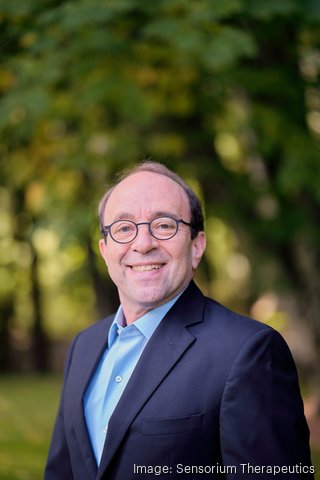Listen to this article 3 min
Three scientists from Massachusetts General Hospital have formed a new startup to take active compounds from plants and other natural sources and update them for the 21st century, and they've got $30 million in venture capital to do it.
For thousands of years, people have used leaves, berries and mushrooms to varying psychoactive effects, ranging from psychedelic trips to pain relief. Jacob Hooker, scientific director of Mass General's autism center; Stephen Haggarty, director of Mass. General's chemical neurobiology lab; and Jerry Rosenbaum, the hospital's psychiatrist-in-chief emeritus, have been working on a way to treat psychiatric and related disorders using such methods.
About two years ago, Rosenbaum turned to another colleague of his: Dick Simon, who chairs the advisory council for Mass General's Center for the Neuroscience of Psychedelics. Simon and Rosenbaum have been working together for about 27 years, he said. Simon signed onto the new idea, and now leads a startup called Sensorium Therapeutics, with Rosenbaum, Hooker and Haggarty as scientific co-founders.
"The idea was, everyone's focused on a dozen or so psychedelic molecules. What about the vast white space of hundreds of plants and thousands of natural products that have been used for millennia by humans?" Simon said.
Medical psychedelics database — and $30M
Sensorium has built its own database of natural products. The team has also built machine-learning algorithms that take that library and analyze it for therapeutic mechanisms that have an established efficacy in the human brain, thus pinpointing which compounds are ripe for drug development.
"Maybe chewing that leaf is not that helpful, but chewing this leaf is incredibly helpful, so let's figure out why and enhance it," Simon added. "We're deriving new pharmaceutical treatment out of that. We're not using the leaves, but the leaves are providing the inspiration."
Sensorium's lead drug candidate is called SENS-01. It's based on an alkaloid from a succulent that has long been used for wellbeing, calmness and "anxiety-like features," according to Hooker. Sensorium's team is now taking that alkaloid and working to enhance it, figuring out potential toxicities and eliminating them while concentrating the positive parts.
"SENS-01 is kind of an amazing program," Hooker said. "We are at the point where we have identified the natural product from the plant and identified liabilities that we need to fix, specifically around how it would behave in the human system pharmacokinetically."
SENS-01 is expected to enter human clinical trials in 2024. To fuel that ambition, the startup has secured $30 million in a Series A round led by Santé Ventures, with participation from Route 66 Ventures, CU Healthcare Innovation Fund, Palo Santo, Iter Investments, WPSS.bio, Ocama Partners and re.Mind Capital.
Anxiety, depressive disorder treatment
Sensorium is already looking beyond SENS-01. The company has an explicit goal of nominating a second program by the second half of 2023, which is likely to take aim at anxiety or depressive disorders.
"Our starting point is anxiety and mixed anxiety and depression, but what we learn may take us in adjacent directions. Interestingly, there is a lot of overlap or comorbidity or common symptoms across psychiatric disorders," Rosenbaum said. "To take one that I've spent some time looking at, rumination — intensive, disordered rumination — is a common fixture of many disorders." He specifically names obsessive-compulsive disorder, anxiety and depression among these.
Sensorium currently employs 14 people, with plans to add five to 10 full-time employees within the next six to 12 months. Its headquarters is in South Boston.
Sensorium is not the only startup working in this field. Across the river in Cambridge, LifeMine Therapeutics is taking a similar approach by analyzing a library of fungi to find genetic sequences that form the bases for small-molecule drugs. Unlike Sensorium, however, LifeMine is not working in the psychiatric space at all. Its two sets of drugs are meant to treat cancers and autoimmune dysfunction, respectively.
Total funding amount
| Rank | Prior Rank | Organization/ |
|---|---|---|
1 | 1 | Massachusetts General Hospital |
2 | 2 | Brigham and Women's Hospital |
3 | 3 | Boston Children's Hospital |





